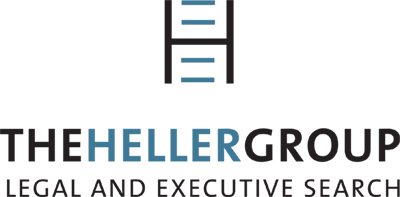When a star employee hands in a letter of resignation employers are often left with unanswered questions about where things went wrong.
Candidates’ reasons for moving positions are always varied and personal; however, when speaking to candidates about why they are interested in making a move, there is one reason that I hear raised time and time again: lack of mentorship. This is a concern I have heard across the board from lawyers of varying seniority both at firms and in-house. With the release of The Law Society of Upper Canada’s Mentoring and Advisory Services Proposal Task Force on January 28, 2016, it is clear that mentoring continues to be a hot topic in the profession and in-house companies should take steps to ensure the mentorship is part of their overall retention strategy.
Lawyers who are transitioning from a firm to an in-house role will face new challenges such as managing external counsel, balancing business and legal needs, and working with executive teams. Even if the lawyer received strong mentorship at their previous firm, there is a need for companies to provide new mentorship opportunities which focus on guiding lawyers in addressing these new challenges. The creation and maintenance of mentorship programs can certainly be more difficult at smaller firms and in-house environments where there are fewer available resources for the program as well as a more limited selection of senior mentors available. Some suggestions for in-house lawyers looking to connect with senior lawyers outside of their employment network include alumni networks, external counsel and the CCCA’s mentoring program, Path to Excellence. The CCCA program is free for all regular CCCA members and provides confidential matching of mentors and mentees.
My own observations have led me to conclude that the mere existence of a formal mentorship program on paper does not necessarily mean that the program is working for participants. For example, mentor-mentee matches are typically made early in the working relationship and, as a result, these matches should be evaluated as careers progress to ensure they are working. Chemistry between mentor and mentee is an essential element of a successful mentorship experience and relationships should be evaluated to ensure that efforts are not wasted if a mis-match is made early on. Additionally, when work gets busy, it is easy to push aside your standing mentor-mentee lunch and so companies should also take steps to encourage and ensure engagement in these programs.
The mentoring and advisory program approved by LSUC represents an important step forward in recognizing the importance of mentoring in the legal profession.
Companies need to continually evaluate the mentorship opportunities available to in-house counsel, and connect counsel with external services where necessary, in order to prevent against the loss of key talent.
Jennifer is a Recruitment and Communications Consultant with The Heller Group. She is actively involved in the recruitment and placement of lawyers into law firms and corporations and is also responsible for the corporate communications related to The Heller Group. In her spare time, Jennifer enjoys travelling, curling and spending time with friends and family.
Image via Bigstockphoto.com


